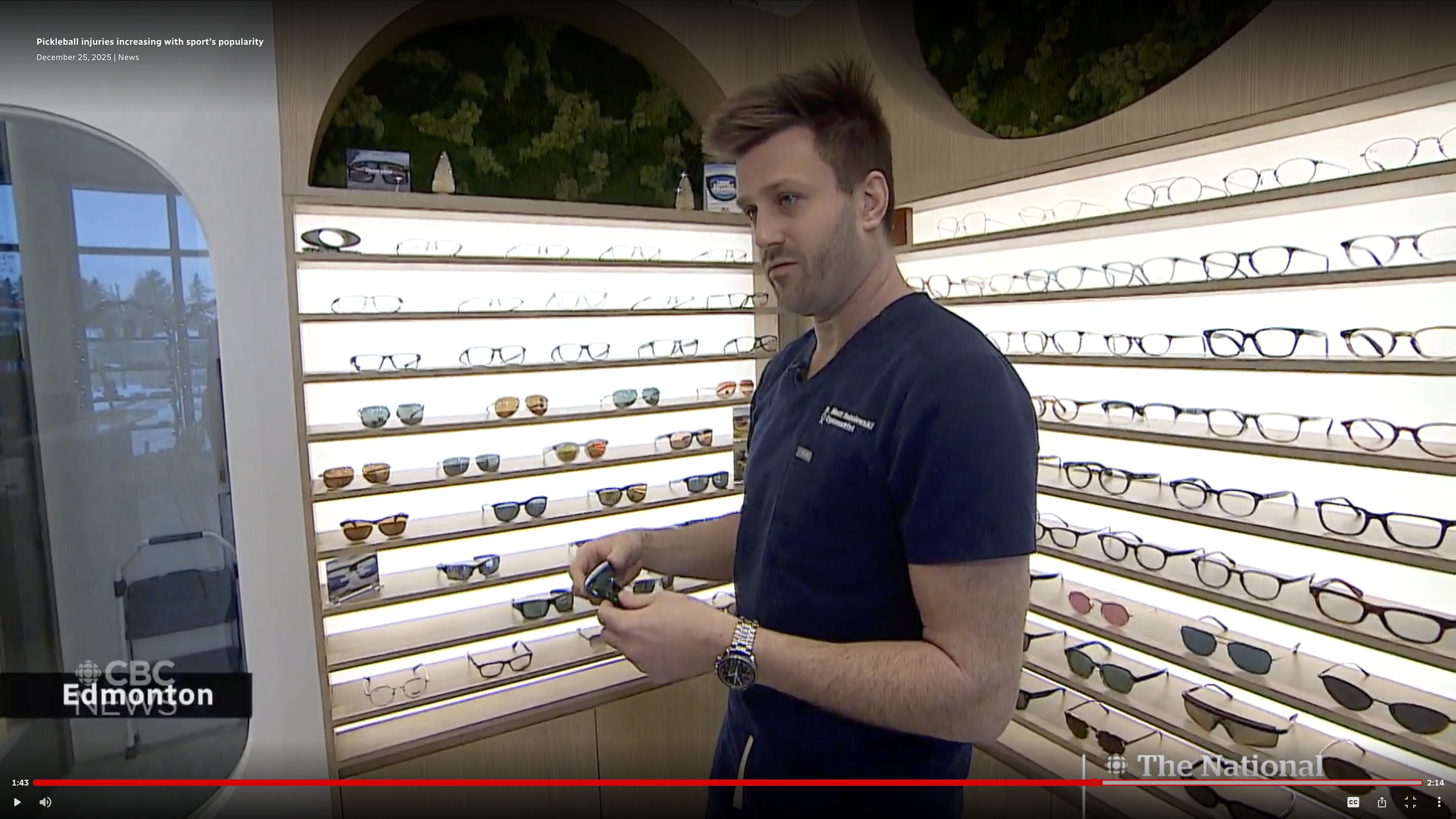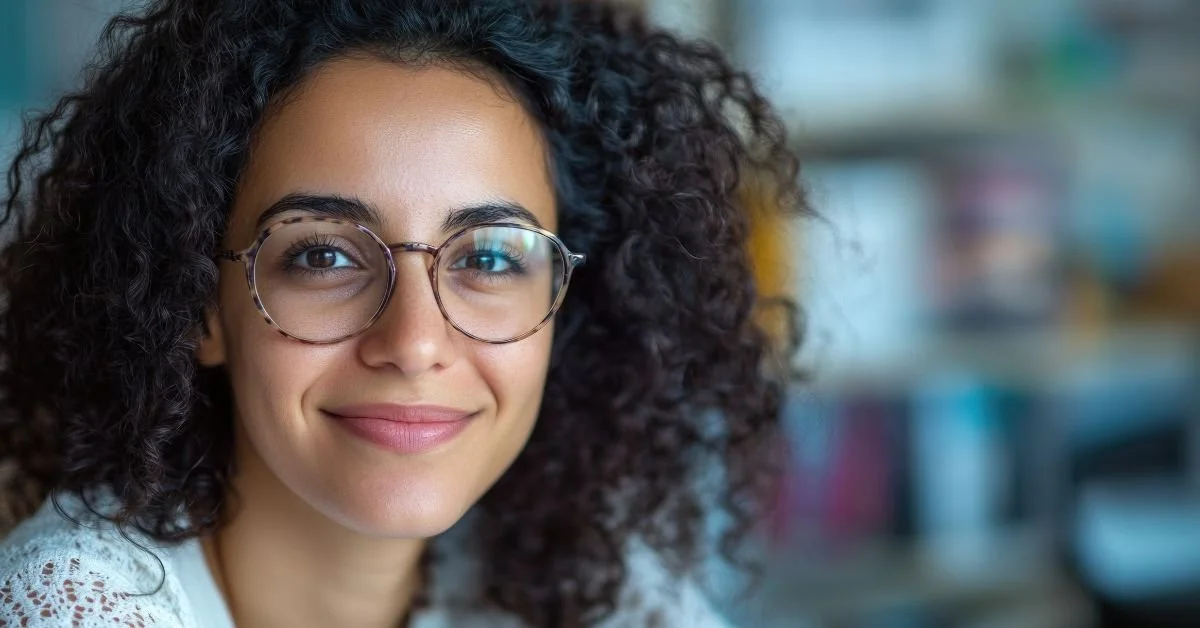Ensuring Clear Vision: When is the Best Time to Get Your Child's Eyes Examined?
As parents, we are constantly vigilant about our children's health, scheduling regular check-ups with pediatricians, dentists, occupational therapists and specialists as needed. However, one aspect of their health that often gets overlooked is their vision. Good vision is crucial for a child's overall development, impacting their ability to learn, socialize, and explore the world around them. That's why it's essential to know when the best time is to get your child's eyes examined.
Early Detection is Key
The Alberta Association of Optometrists recommends that children receive their first comprehensive eye exam between the ages of 6 and 9 months. This initial exam is crucial for detecting any potential eye problems early on, even before a child can communicate about any vision issues they may be experiencing.
A joint study between the Canadian Association of Optometrists and the Canadian Ophthalmology Society titled Evidence-based clinical practice guidelines for pediatric eye examinations in children aged 0-5 in Canada concluded that: "In addition to routine screening by a primary health care professional, a comprehensive eye examination by an individual with the expertise to detect risk factors for amblyopia—such as an ophthalmologist or optometrist—is required in early childhood. The findings support the importance of early detection of amblyopia before 36 months and no later than 48 months of age via screening with at least 1 comprehensive eye examination before age 5 years."
Many people question what your eye doctor will check for during these first eye exams. These early kids’ eye exams will assess your child's visual development, eye movements, and overall eye health. While it's rare for infants to have significant vision problems, early detection of issues like lazy eye (amblyopia), crossed eyes (strabismus), or congenital cataracts can lead to better treatment outcomes. Some of these eye conditions are pretty common.
Regular Check-ups as Your Child Grows
After the initial eye exam at six months, it's recommended that children have another comprehensive eye exam between the ages of three and five. This is when many vision problems, such as nearsightedness (myopia), farsightedness (hyperopia), and astigmatism, may start to become apparent as the eyes continue to develop.
Following this early childhood exam, children should have their eyes examined again before starting Kindergarten, around age five or six. Regular eye exams become especially important as children enter school because good vision is essential for success in the classroom. Undetected vision problems can lead to difficulties with reading, writing, and overall academic performance. To further increase the number of children who see an optometrist, Helio Optometry is a proud partner of the Eye See...Eye Learn program, which focuses on getting all children in Kindergarten to see an eye doctor.
In addition to these scheduled eye exams, parents should be aware of any signs that may indicate their child is experiencing vision problems. These signs include:
Squinting or closing one eye to see better
Holding books or screens very close to their face
Complaining of headaches or eye strain
Seeing an eye that drifts when their child is tired
Rubbing their eyes frequently
Avoiding activities that require visual concentration, such as reading or drawing
If you notice any of these signs or have concerns about your child's vision at any age, don't hesitate to promptly schedule a kids eye exam with one of our optometrists.
What's the Best Time of Day for An Eye Exam?
Determining the best time of day to schedule your child's eye examination can depend on various factors, including their age, routine, and individual preferences. However, here are some considerations to help you choose the optimal time:
When They're Well-Rested: It's generally advisable to schedule an eye appointment when your child is well-rested and alert. Avoiding times when they're likely to be tired or cranky, such as late in the afternoon or close to naptime, can help ensure a smoother and more productive examination.
During Peak Alertness Hours: For most children, mornings tend to be a better time for appointments as they're typically more alert and attentive earlier in the day. Aim for appointments during mid-morning or late morning when your child is likely to be at their peak alertness.
Avoiding Hungry Times: Schedule the appointment after your child has had a meal or snack to avoid any potential hunger-related irritability during the examination.
Consider School Schedule: If your child is school-aged, schedule the appointment so they won't miss classes or activities. Some parents prefer booking appointments during school breaks or on weekends to minimize disruption to their child's academic schedule. Often, the best time of year to book kids' eye exams is during the summer break before school even starts. However, the bottom line is that if your child has vision issues, a one-hour eye exam may be the best investment, so don't delay.
Factors Specific to Your Child: Every child is unique, so consider their individual temperament and any factors that might affect their comfort during the examination. For example, if your child tends to be more cooperative in the afternoon or has specific sensory sensitivities, you may need to adjust the timing accordingly.
Ultimately, the best time of day for your child's eye examination is one that fits well with their schedule and routine while considering their comfort and alertness levels. Prioritize scheduling the appointment at a time when both you and your child can be fully present and engaged, ensuring the most accurate assessment of their vision health. If you have any concerns or preferences, don't hesitate to discuss them with the eye care professional when scheduling the appointment.
The Importance of Yearly Eye Exams For Kids
Once your child starts school, it's a good idea to schedule annual kids’ eye exams, especially if they don't require vision correction. Even if your child hasn't shown any signs of vision problems, regular check-ups are essential for monitoring their eye health and ensuring any issues are detected and addressed early.
For children who wear glasses or contact lenses, annual exams ensure that their prescription is up to date and that their vision is adequately corrected. Children's eyes can change rapidly as they grow, so it's essential to keep their prescriptions current to prevent any potential issues. Your optometrist may also talk to you about specific myopia management treatments for nearsighted children to help reduce the magnitude of their prescription in the future.
5 Things You Shouldn't Say To Your Kids Before or During Their Eye Exam
When preparing children for an eye exam, it's crucial to be mindful of the language we use and the messages we convey. Here are some things parents should avoid saying to kids before an eye exam:
"It won't hurt": While it's true that kids’ eye exams are generally painless, telling a child that it won't hurt may inadvertently raise anxiety or fear, especially if they're already feeling apprehensive about the unknown experience. Instead, parents can reassure their child by explaining that the exam involves looking at pictures, movies, 3D images and letters and that it's quick, easy, and fun.
"If you fail, you'll need glasses": Using the word "fail" in relation to an eye exam can create unnecessary pressure and anxiety for children. Instead, emphasize that the purpose of the exam is to check how well their eyes are seeing and that glasses are simply one of many options for helping them see better if needed. Frame it in a positive light by explaining how glasses can make things clearer and more comfortable if their vision isn't perfect.
"Don't be scared": Telling a child not to be scared doesn't necessarily alleviate their fears; it may invalidate their feelings or make them feel like something is wrong with being afraid. Instead, acknowledge their feelings and offer reassurance by saying, "It's okay to feel a little nervous, but I'll be right here with you the whole time." Please encourage them to ask the doctor questions about what we will do or what we're looking at during the eye exam.
"Sit still and be quiet": While children need to cooperate during the exam, overly strict instructions to "sit still and be quiet" can add pressure and stress, making it more challenging for them to relax and participate fully. Instead, encourage them to do their best and praise their efforts, even if they fidget or talk a bit during the exam. Suppose we're seeing multiple people from the same family. In that case, avoiding bringing everyone into the exam room is often better because it can lead to many distractions.
"It's no big deal": While you may intend to minimize the significance of the exam to ease your child's worries, dismissing their concerns as "no big deal" may invalidate their feelings and make them feel unheard. Instead, acknowledge their concerns and offer support by saying, "I understand that this might feel new or a bit strange, but we're here to make sure everything is okay."
Parents should approach eye exams with sensitivity, empathy, and positivity. Parents can help their children feel more comfortable and empowered during the exam process by using supportive language and focusing on reassurance rather than pressure.
Are Kids' Eye Exams Expensive?
In Alberta, kids' eye exams are covered by Alberta Health Care, ensuring that all children have access to essential vision care services. This coverage extends to routine eye exams for children ages 0-18, providing parents with peace of mind knowing their child's vision health is a priority. By covering the cost of eye exams for children, Alberta Health Care helps ensure that every child can receive the vision care they need, regardless of their family's financial situation. This commitment to preventive care underscores the province's dedication to the well-being of its youngest residents, setting the stage for a lifetime of healthy vision.
See You Soon
Prioritizing your child's visual health by scheduling regular eye exams is essential for their overall well-being and success. Parents can ensure early detection and intervention if needed by following the recommended guidelines for eye exams and staying vigilant for any signs of vision problems. At Helio Optometry, we understand the importance of proactive eye care for children and provide comprehensive eye exams in a comfortable and child-friendly environment. Our team of experienced optometrists is dedicated to providing personalized care and support to ensure every child receives the attention and treatment they deserve. Don't wait until there's an issue – book your child's eye exam with Helio Optometry today and invest in their bright and clear future.
Disclaimer: The content provided in this blog post by Helio Optometry eye care clinic in Edmonton is intended solely for informational purposes and does not replace professional medical advice, diagnosis, or treatment by a Licensed Optometrist. No doctor/patient relationship is established through the use of this blog. The information and resources presented are not meant to endorse or recommend any particular medical treatment. Readers must consult with their own healthcare provider regarding their health concerns. Helio Optometry and its optometrists do not assume any liability for the information contained herein nor for any errors or omissions. Use of the blog's content is at the user's own risk, and users are encouraged to make informed decisions about their health care based on consultations with qualified professionals.












